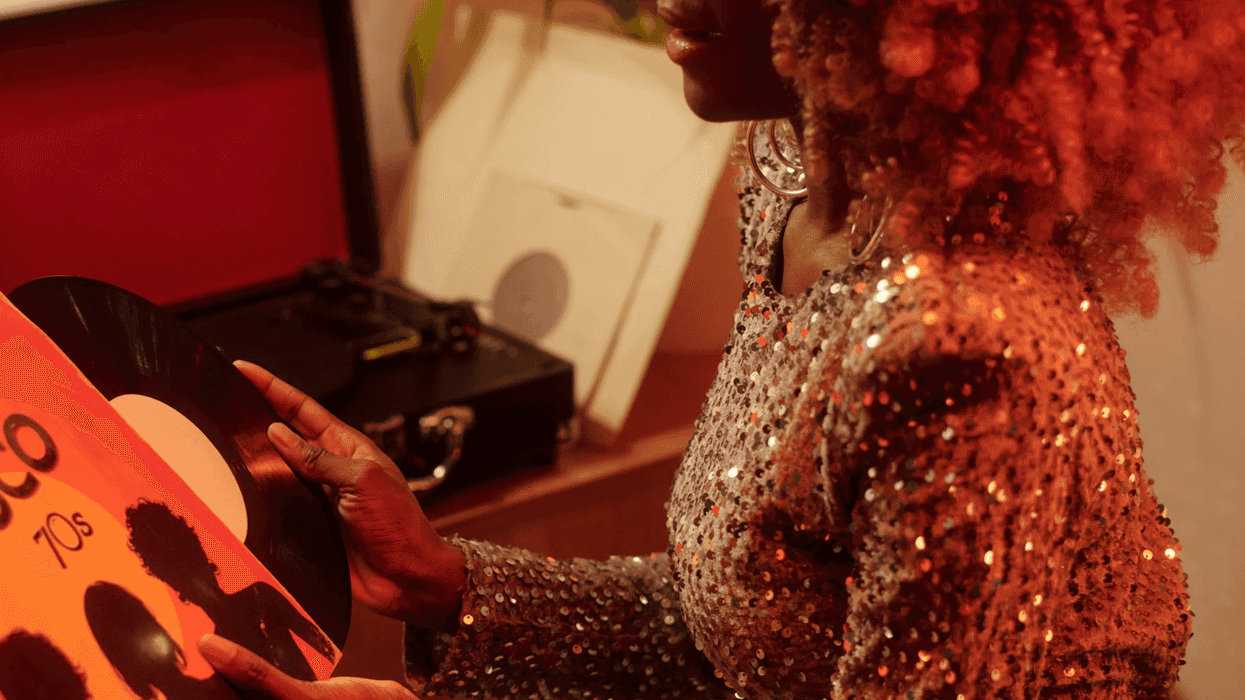The idea for the Everyday Heroes book was born about five years ago; America was in the early grip of the recession and confidence in our political leadership was deeply compromised. The notion that we had to become architects of our own destiny, both as individuals and as a country, seemed more critical than ever. By spotlighting the everyday heroes among us—individual agents of hope and change who had committed themselves to improving the lives of those in need—I hoped to challenge and empower others to lead and give within their own communities.
The heroes honored in the book are crusaders for social justice and equality. Their work is humanitarian in nature. They are all the founders and/or leaders of successful nonprofits that represent a diverse range of causes and demographics. Offspring of the marriage of entrepreneurship and community service, they nearly all self-identify as social entrepreneurs. They are also what I would categorize as “out of the box” visionaries, whose often unorthodox techniques set them apart from the traditional nonprofit model. As hero Linda Rottenberg, the founder of Endeavor, said to me: “If people don’t think you’re crazy at the beginning, then maybe you’re not thinking big enough.”
Individually, each of these men and women in Everyday Heroes has something exquisitely unique to teach us. Their personal paths to magnanimity are scattered with guideposts and universal lessons for achieving fulfillment. In their stories are actualizations of many of our own deep aspirations to live a just and generous life. By example, they demonstrate that the potential for heroism is innate to us all, if only we choose to activate it.
Collectively, these fifty heroes paint an electrifying portrait of contemporary philanthropy in America. The themes and qualities that emerge repeatedly in their profiles add up to a new and provocative re-imagining of charity, one that eschews tradition and embraces innovation, daring, and a global mindset.
The variety of causes, ideas, and narratives chronicled in Everyday Heroes goes to prove that there are as many different ways to give as there are human beings. With each hero’s story, there is yet another entry point to the undercurrent of generosity that flows around us. The contributions being made by each of these heroes far transcends their literal impact. The real take-away is this: There is no contribution too small or insignificant. Whether you choose to show kindness to a loved one or a neighbor, to volunteer, to donate, or to build your own movement, you are helping to grow a culture of giving, from which—to use a favored phrase among these entrepreneurs—a thousand flowers will bloom.
Excerpted from Everyday Heroes: 50 Americans Changing the World One Nonprofit at a Time, from Welcome Books. By Katrina Fried. Photographs by Paul Mobley
Adam Lowy
Founder, Move For Hunger
While many think of hunger as a third-world problem, the statistics in our country are devastating. One in six Americans is struggling to find their next meal. Equally relevant to New Jersey native Adam Lowy, whose family is in the moving business, is that one in seven Americans relocate to a new home each year. In 2009, Lowy put those two statistics together and had an idea: What if he could deliver the food that people throw away on moving day to those in need instead of it going to waste? Shortly after, he founded Move For Hunger, a nonprofit that mobilizes movers across the country to rescue and transport discarded non-perishable foods to shelters and food banks. With a network of relocation companies that expands daily, Lowy’s local humanitarian experiment is quickly becoming a national campaign to stop hunger.
Anne Mahlum
Founder and CEO, Back on My Feet
In 2007, then twenty-seven-year-old Anne Mahlum left behind a promising corporate job to start Back on My Feet, a nonprofit that uses the discipline of running to inspire confidence and self-sufficiency among the homeless. A veteran marathoner, Anne started running when she was sixteen, as an escape from turbulence in her family life. A decade later, she began a running club with a group of men in a local shelter. She believed that running could give them back the sense of control and accomplishment they needed to rebuild their lives. The program was so successful in its first few weeks, Anne knew her intuitions were right. In the five years since, Back on My Feet has grown exponentially, adding programs that provide educational support and job placement, and helping hundreds of members through chapters in nine states.
Ben Mangan
Co-Founder, President, and CEO, EARN
The concept behind EARN—an acronym for Earned Assets Resource Network—is brilliantly simple: saving for future goals is the foundation of wealth in America and the first step on the path out of poverty. Ben Mangan didn’t just learn this in graduate school or through the study of economics, he knows this from personal experience. Mangan grew up poor and understands intimately the entrenched obstacles facing low-income families in this country. In fact, if an organization such as EARN—which offers the disadvantaged matched savings accounts ear-marked for higher education, homeownership, or small business expansion—had been available to his family when he was young, it might have profoundly improved their lives. The real beauty of EARN is its message of empowerment—by helping people lift themselves out of poverty, they become designers of their own prosperity instead of dependents on the prosperity of others.
Catherine Oppenheimer
Co-Founder, National Dance Institute of New Mexico
America’s collapsing education system has long been a very public blight on our greatest-nation-in the-world persona. Among developing countries, our students rank average at best in most every category of aptitude and skill. The solution to this epic failing continues be among the most elusive and hotly debated social and political issues out there. For Catherine Oppenheimer, the answer is as out-of-the-box as it gets: Make ‘em dance. For almost twenty years, Oppenheimer, a former professional ballet dancer, has used the discipline, rigors, and joy of music and movement as a portal to instilling the strongest foundational qualities for achievement there are: self-confidence, discipline, pride, and passion. Her groundbreaking program, The National Dance Institute of New Mexico (NDI-NM), transforms the futures of thousands of school-age children every year. Have your doubts that dance might just be the Rosetta Stone of educational reform? Studies show the percentage of NDI-NM participants who are proficient in math and reading is nearly double that of district averages. The proof is in the stats.
Eric Schwarz
Co-Founder and CEO, Citizen Schools
For seventeen years, Eric Schwarz has been fighting to level the playing field in American education. The disparity between a lower and upper income child’s access to extracurricular activities and mentorship compelled Schwarz to develop Citizen Schools—an unconventional educational program that extends the middle-school day with hands-on teaching and personal tutoring. A combination of community volunteers and trained AmeriCorps Fellows make up this “second shift” of citizen teachers, who engage students in a variety of creative learning opportunities, including apprenticeships taught by accomplished professionals—such as chefs, jewelers, engineers, architects, writers, and doctors—who share their expertise and real-life experiences with students an afternoon a week.
James Lecesne
Co-Founder, The Trevor Project
When James Lecesne created the character of Trevor—a gay thirteen-year-old boy who attempts to take his life after being rejected by friends because of his sexuality—for his one-man show, Word of Mouth, in 1993, he had no idea it would spark a national movement. Co-founded by Lecesne in 1998, after the story of Trevor was adapted as a short film, The Trevor Project was the first 24-hour suicide-prevention hotline for lesbian, gay, bisexual, transgendered, and questioning teens in America. In the decade and a half since then, the organization has grown to include an active online community, and offers lifesaving guidance and resources for educators, parents, and young people.
Jay Scott
Co-Executive Director, Alex’s Lemonade Stand Foundation
By the time eight-year-old Alexandra “Alex” Scott lost her life to cancer in 2004, she had already touched the lives of millions. Her humble idea to raise money for a cure through a front-yard lemonade stand captured the world’s heart and launched a movement to end childhood cancer. When Alex passed away, she had surpassed her seemingly impossible goal of one million dollars. Her parents, Liz and Jay Scott, carried their daughter’s legacy forward by starting a foundation in her name that has raised more than $55 million since Alex set up her very first lemonade stand twelve years ago.
Jill Vialet
Founder and CEO, Playworks
“We don’t stop playing because we grow old; we grow old because we stop playing,” George Bernard Shaw once said. Jill Vialet’s career personifies this maxim. In her role as the leader and founder of Playworks, a nonprofit dedicated to transforming recess into a valuable and nurturing part of the school day, Vialet’s life is filled with play. In the 2011–12 academic year, Playworks helped insure safe and healthy recreational time for 130,000 kids in three hundred schools in 23 cities across the United States, through their direct service program. Vialet has been honored as a social innovator at the Clinton Global Initiative and was recently named as one of the Forbes Impact 30—a highly select list of leading social entrepreneurs worldwide.
Kathryn Hall-Trujillo
Founder and Director, Birthing Project USA–The Underground Railroad for New Life
In America, which has the highest infant mortality rate of any industrialized nation in the world, African American babies are twice as likely to die as Caucasian babies before they reach their first birthday. That statistic is the driving force behind the Birthing Project USA, a nonprofit that promotes a peer support system for disadvantaged, pregnant African American women. The model is simple: one woman helping guide another woman through a healthy birth and her child’s first year of life. The program is the invention of Kathryn Hall-Trujillo, who has spent twenty-five years crusading for the safety and well-being of African American infants and their mothers. Hall-Trujillo’s methods may be more based in the spiritual, but the results are pure science: babies born through the Birthing Project have longer gestation periods and higher birth weights than those in the general target population. Her heroic efforts have saved thousands of lives but not without a significant personal cost: “I can’t tell you how many times I had to refinance my own house to make payroll, and to this day I still haven’t taken a real vacation since starting the project,” says Hall-Trujillo, who is familiarly known as “Mama Kat.” She regrets nothing. The gift of knowing she has “midwifed” thousands of healthy newborns into this world eclipses every sacrifice.
Mark Goldsmith
President and CEO, Getting Out and Staying Out
Mark Goldsmith enjoyed a long and lucrative career as a business executive. When it came time to retire, he could have just donated his suits to charity, settled back in a deck chair, and enjoyed the rewards of his hard work. He could have done that, but he didn’t. That’s just not who Goldsmith is. When serendipity landed Goldsmith at Rikers Island for a day (as a volunteer, not an inmate), he saw that some assistance and education for convicts reentering society could change lives and futures. So he called upon his lifetime of profit-making skills to build a robust nonprofit called Getting Out and Staying Out in 2004. Through a combination of psychological, educational, and vocational support, Goldsmith’s organization has since successfully guided hundreds of men through their transition from the inside to the outside. The numbers speak for themselves: the recidivism rate nationwide for young men is about 60 percent; for members of Getting Out and Staying Out, it’s 20 percent.
Nancy Lublin
CEO and Chief Old Person, DoSomething.org
In 1996, when Nancy Lublin started her first nonprofit, Dress for Success—which provides low-income women with interview suits and career development services—she was barely out of her teenage years. Today, she runs the largest organization devoted to teenagers and social change in America. Her title at DoSomething.org may be CEO and Chief Old Person, but don’t let her fool you—Lublin’s approach to business is as fresh and youthful as ever. Under her leadership, DoSomething.org’s internet-based model and it’s-hip-to-help-the-world vibe have succeeded in making the words “charitable” and “cool” synonymous—a charmed achievement in the domain of nonprofits.
Raymond Gant
Co-Founder and President, The Ray of Hope Project
Born and raised in the inner city of Philadelphia, Raymond Gant has lived a life of extremes. He’s seen both the darkest and kindest sides of humanity, in others and in himself. After serving a twelve-year prison sentence for dealing drugs, Gant defied the odds and used his second chance to make a valuable contribution to the community he’d wronged. In 2002, he founded The Ray of Hope Project—a green nonprofit that’s mission is to rehabilitate the homes of low-income residents using only recycled materials and a volunteer workforce made up of former convicts, college students, and skilled contractors. Gant has also spearheaded a neighborhood cleanup initiative and often performs needed services for seniors such as lawn mowing and minor home repairs. Every so often, Gant returns to the prison where he once spent two years in solitary confinement to share his redemptive story with the inmates there, and let them know—it’s never too late to change the ending of your story.
Roy Prosterman
Founder and Chairman Emeritus, Landesa
Since 1967, Roy Prosterman and his organization, Landesa (formerly know as The Rural Development Institute), have helped secure land rights for more than 105 million families—representing more than 400 million people—in forty-five developing countries throughout the world. The impact is staggering. This conversion—from landlessness to land ownership—has pumped billions of dollars into the global economy and transformed the lives of the land rights beneficiaries—leading to a 60 percent increase in agricultural production, a 150 percent increase in annual family income, and improved health, nutrition, and educational achievement. Prosterman, now seventy-seven years old and a two-time Nobel Peace Prize nominee, remains the world’s leading expert on democratic land reform and a fierce advocate for the rights of the rural poor.
Sarah Elizabeth Ippel
Founder and Executive Director, Academy for Global Citizenship
When Sarah Elizabeth Ippel rode her bike down to the board of education in 2005 to first propose a revolutionary public charter school for Chicago’s south side, she was all of twenty-three years old and just two years out of graduate school. What she lacked in experience, she made up for in confidence and zeal. The Academy for Global Citizenship (AGC) offers a new future-oriented model for education, one that aims to prepare its students to be socially and environmentally responsible members of their local and global communities. AGC was the second school in the nation to receive the Gold with Distinction Award from Michelle Obama and welcomes the thousands of educators from around the world who come to study the AGC model in the little barrel factory the Academy calls home. For Ippel, it’s a dream come to life: “It’s a beautiful thing when you’re in love with what you do. I still grow jittery with excitement when I’m en route to school every morning.”
Susan Burton
Founder and Executive Director, A New Way of Life Reentry Project
Growing up in the projects of South Central Los Angeles, Susan Burton had a childhood filled with poverty and brutality. After a series of traumas, including the tragic death of her young son in 1981, she began a decade-long battle with alcohol and drug abuse, serving multiple prison sentences for drug-related crimes. In 1997, she finally got clean and turned her life around. One year later, she founded A New Way of Life Reentry Project, an organization that offers housing and support to women being released from prison. In the past thirteen years, A New Way of Life has sheltered and rehabilitated hundreds of formerly incarcerated women, less than 20 percent of whom have returned to prison since leaving the program.
Taryn Davis
Founder and Executive Director, American Widow Project
Taryn Davis was just twenty-one years old when her husband Michael was killed in Iraq by multiple roadside bombs. Theirs was a young love story that’s tragic abbreviation shattered Davis’ life. As she searched for a way to survive her grief, Davis reached out to other military widows across the country and asked them to share their experiences. In the details of their personal stories of love, loss, and survival, Davis began to find her footing for the first time since Michael died. Through her own journey of healing, Davis discovered her true purpose: to connect and unite the disparate community of America’s military widows, and provide them with opportunities to exchange memories, form friendships, and support one another. Since 2001, more than 6,500 U.S. service members have been killed in Iraq and Afghanistan. Around half of these service members were married, leaving behind an estimated 3,200 military widows. The American Widow Project provides a virtual gathering place for these women on its website, as well as a twenty-four-hour hotline and monthly newsletter. Davis also travels the country bringing small groups of military widows together for unique adventures, like skydiving and camping.
Wynona Ward
Founder and Executive Director, Have Justice–Will Travel
When most of us think of Vermont, we picture the abundance of nature: the snow-covered pines, the rolling hills of farmland, the leaf-strewn winding roads, the charming red barns and B&Bs. Wynona Ward knows a very different Vermont, one that is littered with dark secrets, often kept for generations, where winding roads lead only to hidden suffering and imprisonment. Ward knows this because she grew up on one of those back roads in a home filled with violence and neglect. Unlike so many others in her situation, she escaped the abuses of her childhood, and then returned to try and save others like her. Ward started her nonprofit legal practice, Have Justice—Will Travel, in 1998, the year she graduated law school at the age of forty-seven. Her mission was clear: to represent Vermont’s forgotten battered women and children, and prosecute their abusers.
It’s hard not to wonder if there was some special reason that Ward was able to rise out of her nightmarish beginnings to achieve so much with so little. Perhaps one piece of the explanation is the man she’s been married to for forty-two years. Ward started going steady with Harold in the eighth grade, and they married at eighteen. For sixteen years they drove a truck together, hauling everything from Cirque du Soleil set pieces to Disney on Ice, back and forth across the country, before Ward decided to pursue her legal career. Driving a big rig with your old man may not have the most romantic ring to it, but somehow when Ward describes it, you get a glimpse of the genuine love, humor, and closeness the couple share. Sometimes all it takes is one person to change the trajectory of a life. Perhaps Harold was that one for Ward. And now Ward is that one for thousands.
















 Otis knew before they did.
Otis knew before they did.